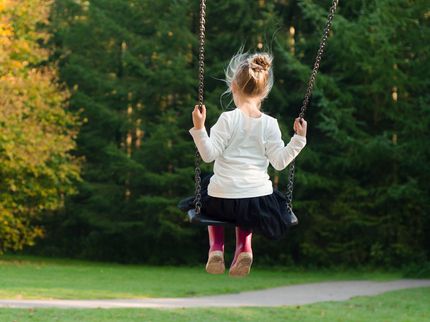Researchers Discover Gene that Contributes to Sense of Balance
Researchers have discovered a gene that appears to be critical for maintaining a healthy sense of balance in mice. The study, led by a team at Washington University School of medicine in St. Louis, appears in the April 1 issue of the journal Human Molecular genetics.
"Loss of balance is a significant problem in the elderly because it can lead to dangerous falls and injuries," says one of the study's principal investigators, David M. Ornitz, M.D., Ph.D., professor of molecular biology and pharmacology at the School of Medicine. "Loss of balance also is a problem for astronauts following exposure to zero gravity. Now that we've discovered this new gene, we can begin to understand the mechanisms that allow the body to sense gravity and maintain balance."
Balance is determined and regulated by the vestibular system, which is housed in the inner ear. To detect gravity, a cluster of particles called otoconia rests atop hair cells lining the inner ear. Like a water buoy guided by the movement of waves, otoconia are displaced as the body moves. As otoconia move, they shift the hair cells, which triggers the cells to send messages to the brain.
Studies suggest that otoconia are only produced during development, and that they progressively degrade throughout life. Scientists believe otoconia become eroded during normal aging, which can lead to balance disorders. But little is understood about how otoconia develop, and whether it may be possible to stimulate the production or regeneration of these particles.
Ornitz's team genetically analyzed two strains of mice tilted (tlt) and mergulhador (mlh) known to have problems with balance. These mice walk with their heads tilted and have trouble orienting themselves in water but have no hearing problems. Moreover, they are missing their otoconia but have normal sensory hair cells. The team discovered that the two strains both have a mutation in the same previously unidentified gene, which the researchers named Otopetrin 1 or Otop1 ("oto" means "ear" and "petra" means "stone").
"It's possible that this is one of the genes that shuts down after development," Ornitz says. "It also is possible that it is involved in a variety of vestibular disorders. If we can find a way to reactivate this gene, we may be able to help otoconia regenerate and thereby treat or prevent balance disorders."
The study's other principal investigators are Isolde Thalmann, Ph.D., research professor of otolaryngology, and Ruediger Thalmann, M.D., professor emiriti of otolaryngology. Postdoctoral fellow Belen Hurle, Ph.D., was first author. The School of Medicine team worked in collaboration with researchers at the University of São Paulo, Brazil.
Most read news
Other news from the department science

Get the life science industry in your inbox
By submitting this form you agree that LUMITOS AG will send you the newsletter(s) selected above by email. Your data will not be passed on to third parties. Your data will be stored and processed in accordance with our data protection regulations. LUMITOS may contact you by email for the purpose of advertising or market and opinion surveys. You can revoke your consent at any time without giving reasons to LUMITOS AG, Ernst-Augustin-Str. 2, 12489 Berlin, Germany or by e-mail at revoke@lumitos.com with effect for the future. In addition, each email contains a link to unsubscribe from the corresponding newsletter.




















































